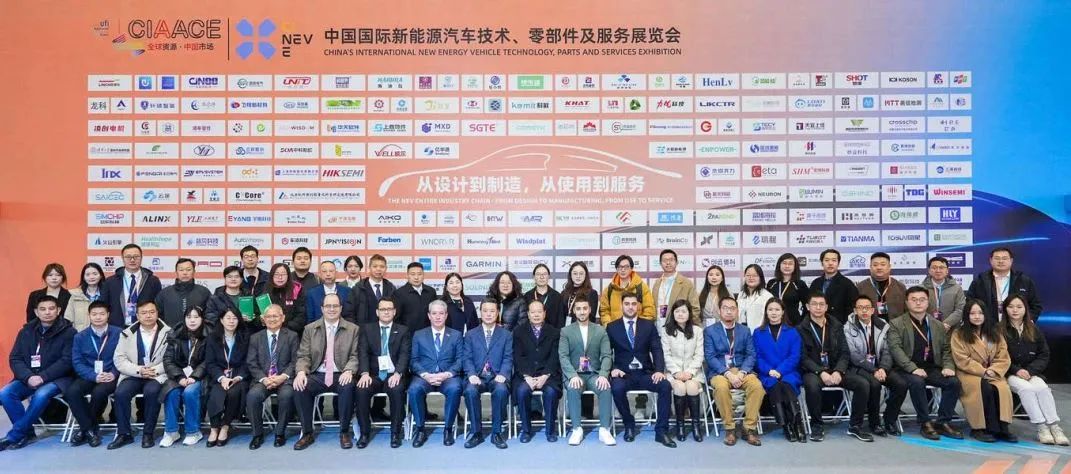- Home
- About Us
- Exhibitions
- Exhibitors
- Attendee
- Exhibits
- News
- Contact Us
Sep. 09, 2025
As the automotive industry accelerates its transition toward electrification and intelligence, the intelligent steer-by-wire chassis has become a focal point of global competition in the automotive supply chain. As a core technology for achieving advanced autonomous driving (AD) and improving vehicle safety and driving experience, it is now seen as essential. Beijing Trinova Auto Tech Co., Ltd. (hereinafter referred to as “Trinova”), leveraging over 20 years of technical expertise and industrial practice in chassis electronic control systems, is emerging as a key driver of China’s independent development of steer-by-wire technologies.

Steer-by-wire technology (X-by-Wire) replaces traditional mechanical linkages with electronic signals, enabling precise control of braking, steering, and driving systems. Its advantages lie not only in faster response and more accurate control but also in providing a highly integrated and redundant foundation for intelligent driving systems. Currently, international Tier 1 suppliers such as Bosch, Continental, and ZF dominate this field. In contrast, Chinese automakers remain heavily dependent on imported chassis electronic control systems, facing significant “bottleneck” risks. Since 2003, Trinova has been developing Electronic Stability Control systems (ESC) and has gradually built a comprehensive technology system covering ESC, EPB, TBS, T-IBC, T-EPS, and T-EMB. This system spans core algorithms, hardware design, and manufacturing validation, achieving a fully self-reliant development chain.

Trinova has proposed a “dual-engine” technical roadmap of “chassis by-wire” and “by-wire chassis”:
Chassis by-wire: Focuses on breakthroughs and industrialization of unit technologies such as by-wire braking and steering. ESC annual production capacity has exceeded 3 million units, while products such as T-IBC and T-EPS have also entered mass production.
By-wire chassis: On this foundation, Trinova promotes the integrated control of driving, braking, steering, and suspension, developing a Full Vector Control (FVC) skateboard chassis and the T-VMC chassis domain controller. These innovations achieve vehicle dynamics coordination across lateral, longitudinal, and vertical dimensions, supporting L3 and above autonomous driving systems.
Trinova has launched several internationally competitive products:
By-wire braking systems: Including ESC, TBS (electric brake booster), and T-IBC (integrated electronic braking system). These systems support CRBS energy recovery, redundant braking, and active pressure build-up with a build-up time of ≤150 ms, meeting ASIL-D functional safety standards.
By-wire steering systems: Covering C-EPS, R-EPS, and the under-development SBW (steer-by-wire system), with redundant designs such as dual MCUs and six-phase motors, supporting L3+ autonomous driving.
Chassis domain controller (T-VMC): Integrates control instructions from multiple systems, achieving unified arbitration and coordinated control of vehicle dynamics.
Electro-mechanical brake (T-EMB): Eliminates the hydraulic system, enabling fully electric braking with faster response and more compact design, representing the future direction of braking systems.

Trinova has established R&D and production bases in Beijing, Tianjin, and Hubei, with complete manufacturing capabilities ranging from ECUs, solenoid valves, and plunger pumps to final assemblies. Its Yingshan, Hubei proving ground is the only dynamic vehicle testing facility built by a component supplier in China, covering diverse conditions such as high/low friction, slopes, and rough roads, enabling rapid calibration and validation. The company has also established a complete V-model development process, with MIL/SIL/HIL testing capabilities, and has passed ISO 26262 functional safety and IATF 16949 quality management certifications.

Trinova has formed partnerships with many mainstream automakers, including Changan, Dongfeng, Chery, Geely, and Great Wall, with products applied to models such as Eado, Yixuan, Tiggo 8, and Haval. Meanwhile, its products have also been exported to Russia (LADA) and the Middle East, gradually achieving a leap from “domestic substitution” to “international export.”
As automotive electronic architectures evolve toward domain-controlled centralization and software-hardware decoupling, the by-wire chassis will become the “standard base” for intelligent vehicles. Trinova will continue to deepen R&D in redundancy design, domain control integration, full electro-mechanical braking (EMB), and steer-by-wire (SBW), driving China’s intelligent chassis technology to the forefront of the global stage.

In 2026, the China International New Energy Vehicle Technology, Components, and Services Expo will gather global technology and product showcases. The event provides an international cooperation platform for supply chain enterprises, reflecting efforts to build a mature and comprehensive supply chain ecosystem in China.

Domestic and International Experts, Industry Leaders, Automakers, and Supply Chain Representatives from the Previous Session
Global Industry Collaboration: Trade discussions focusing on the new energy vehicle industry across multiple countries.
Full Industry Chain Showcase: Over 100 OEMs and Tier 1 & Tier 2 suppliers presenting key products, forming a comprehensive display window.
Impactful New Product Releases: Multiple new technologies and products debut, shaping automotive development directions for 2025.
500+ High-Quality Exhibitors: Carefully selected domestic and international suppliers covering intelligent cabins, autonomous driving, high-tech, and specialized enterprises.
Diverse Concurrent Events: Beyond exhibitions, the event features integrated scenarios including trade negotiations, project incubation, market insights, and networking opportunities.
Date: March 13–16, 2026
Location: Beijing · New China International Exhibition Center, Phase II (Hall A1)
For inquiries or reservations:
Latest News